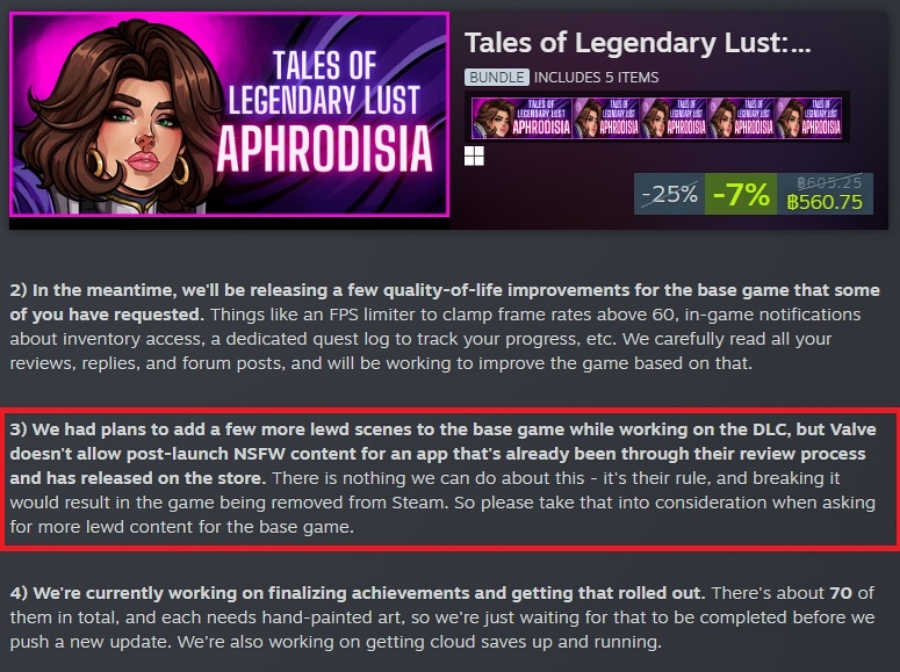
The adult gaming scene on Steam is facing new restrictions after reports confirmed that developers can no longer update their games with NSFW content once they are already released. This policy was verified by developer Crimson Delight, creators of Tales of Legendary Lust, through an official blog post on Steam.
Crimson Delight revealed that while they had planned to add adult scenes to Tales of Legendary Lust through future DLC development, Steam rejected the request. The reasoning given was that Valve does not allow the addition of NSFW content after a game has already passed review and launched. Violating this rule could result in a game being removed from Steam entirely.

Although Valve has not formally updated its Terms of Service to reflect this, if the information is accurate, the new rule appears to be a safeguard against developers who attempt to bypass the review process by releasing a “clean” version of a game and later patching in explicit content. This could also impact free updates for games moving forward.
Some developers worry the rule could be interpreted too broadly, potentially affecting titles that include romance or borderline adult content. For example, Baldur’s Gate 3, which sparked discussion with its infamous bear romance scene during Early Access, might not have passed if such content were added post-launch.
Crimson Delight emphasized that the only workaround is releasing adult content separately as DLC, which Steam still permits. While not an ideal solution, it remains the only option available to studios seeking to provide NSFW expansions.
In a follow-up Reddit post, the studio added that “Valve is not the real problem” and pointed to pressure from credit card companies and political groups as the driving force behind these restrictions. They noted that Valve has actually tried to protect developers, explaining that if Valve truly wanted, it could remove the entire 18+ category altogether but chose not to.
This shift may redefine how adult game studios operate on Steam, forcing them to rethink strategies for post-launch content and long-term support.






